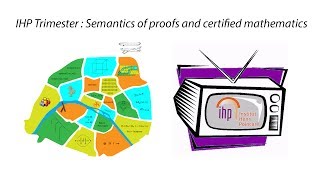Agda (programming language)
Agda is a dependently typed functional programming language originally developed by Ulf Norell at Chalmers University of Technology with implementation described in his PhD thesis. The original Agda system was developed at Chalmers by Catarina Coquand in 1999. The current version, originally known as Agda 2, is a full rewrite, which should be considered a new language that shares a name and tradition. Agda is also a proof assistant based on the propositions-as-types paradigm, but unlike Coq, has no separate language, and proofs are written in a functional programming style. The language has ordinary programming constructs such as data types, pattern matching, records, let expressions and modules, and a Haskell-like syntax. The system has Emacs and Atom interfaces but can also be run in batch mode from the command line. Agda is based on Zhaohui Luo's (UTT), a type theory similar to Martin-Löf type theory. Agda is named after the Swedish song "Hönan Agda", written by Cornelis Vreeswijk, which is about a hen named Agda. This alludes to the naming of Coq. (Wikipedia).



















